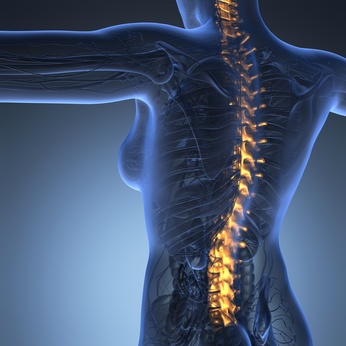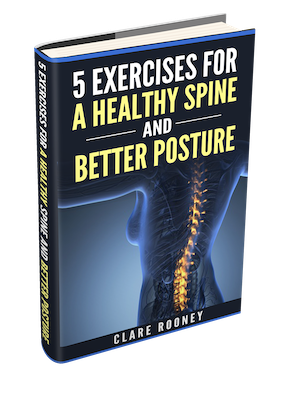The 6 Foundational Pillars of Health

The Many Benefits of Red Meat
April 11, 2018
The Last Temptation: How to Kill Your Cravings for Good!
September 27, 2018We live in what has been dubbed the “Information Age”. Never before have we had access to so much knowledge on Nutrition, Training, and Wellness. And while all of this knowledge has advanced our understanding of how to optimise our health sometimes you can have too much of a good thing. How does one differentiate the good the bad and the ugly out there in google and you tube land?
I have been in the business of Health, Wellness and Exercise for 30 years now and what I have discovered, as many of my peers have who have been mastering their craft for decades, is that you can never overlook the basics. In fact the longer you hone your craft the more you see the value in a constant return to the foundational principles.
“Truth is ever to be found in the simplicity, and not in the multiplicity and confusion of things.”
Isaac Newton
So it is with this in mind that today I wish to bring you a simple template for your Health and Wellness Journey. I learned these foundational principles from Paul Chek, one of the many mentors on my ever evolving journey. All of these principles are of equal value and importance. They are not listed in any hierarchy. You may have to focus on one more than another at any given phase of your life but all must be included for a solid foundation to your health and your life.
1: Thoughts and Feelings
It is not possible to be fully physically fit if we are not also mentally and emotionally fit. Many people work out and eat healthy so they will look better. In this way they hope to feel better about themselves and have more confidence (think better about themselves). However the irony that unfolds is that many people who have lost a lot of weight, or maybe even entered a physique contest, invariably do not necessarily feel better or think more favourably about themselves. This outside in approach is doomed to failure. When you feel good in your own skin and think positively about yourself you are more lightly to engage in healthy behaviours and your self-esteem will not hang on your external image. So what do we do with all of the negative thoughts and self-berating tendencies? You have to see that they are- just thoughts. We only give power to thoughts if we focus on them and start to believe in them. You are not your thoughts! Once you start to become the observer of your thoughts and start to see them as clouds passing in the sky they will lose their power.
“The primary cause of unhappiness is never the situation but your thoughts about it.”
Eckhart Tolle
The feelings realm is even more complex than the thinking realm. Many people get lost in the realm of Mind as an avoidance tactic to escape their feelings. Supressed feelings can become the ultimate saboteur on your fitness journey. When you remove all of those excess calories and junk foods that overstimulate the reward centres of your brain and numb out what’s going on in the background don’t be surprised if you start to feel irritable , moody or angry. That’s your supressed content coming up. What’s the best way to deal with it? Find new ways of relieving stress like stretching, nature walks and art. When those tough feelings come up just sit with them and feel them fully. I have had to practice a LOT in this arena myself! I used to be over zealous with my training and overly disciplined with my diet to distract from unpleasant emotions that I did not want to feel. Feelings buried alive never die so face those feelings, feel them fully, love yourself through the process and the urge to cheat on your healthy nutrition plan or skip your workouts will abate.
- Breathing
I recommend that my clients spend about 10 minutes belly breathing every day. I do as many as 5 different breathing techniques with my clients depending on what our focus is however the granddaddy of them all is belly or diaphragmatic breathing. Take a deep breath in through your nose and let that lower belly fully expand. The first 2/3rds of the air goes to inflate the belly area and the last 1/3rd goes to the upper chest. Slow this breathing down. At least 5 seconds on the in breath and 5 seconds on the outbreath works very nicely. You don’t need to breathe in for 6 secs hold for 2 and breathe out for 7 or any other weird combinations! Keep it simple folks and it will be easier to remember and practice. The more complicated you make it will cause you to be driven back into Mind. The whole focus of belly breathing is to optimise breathing mechanics (a foundation stone of healthy integral movement) and even more importantly to bring you to a state of presence. In this state you become a Human Being once again instead of a Human Doing!
- Sleep
“I love sleep. My life has the tendency to fall apart when I’m awake, you know?”
Ernest Hemmingway
Sleep is perhaps one of the most under rated forms of healing. Your health literally starts to fall apart if you do not get enough of both quality and quantity of sleep. I recommend that all of my clients get to bed by 10 pm latest and get between 7-9 hours of sleep. 6 hours or less and you are really asking for trouble. This is the bodies rest, repair and regenerate time on ALL levels, physical, mental and emotional. Your body goes through its physical repair between 10 pm and 2 am and its psychogenic repair between 2 pm and 6 pm. So if you don’t hit the hay till midnight don’t be surprised if you have slow wound healing, recurring or nagging injuries, a poor immune system or blood sugar regulation issues. All of these problems can lead to obesity and a host of other diseases. Sleep experts recommend to go to bed and get up at the same time each day (including weekends!).
- Hydration
Staying well hydrated is absolutely foundational for health. Your water should come from a spring or a good quality bottled mineral water or a home filtration system. In most countries tap water is for flushing toilets! There is no substitute for pure water, not fruit juice or tea or coffee. In fact some beverages like coffee can be dehydrating. A formula for adequate water intake that I learned from Charles Poliquin is 39 mls of water per Kg of body weight. So if you are a female weighing 60kg you need 2.3 litres of water per day and if you are a male weighing 100kg you need 3.9 litres of water per day! If you are not used to drinking this much water than start slowly and build up to the amount. Spread it evenly throughout the day. The bottom line is that if you do not have a bottle of water within arms reach right now….you are probably dehydrated!
- Nutrition
Great nutrition is a corner stone of any wellness plan. Most people would not argue with that. However almost nobody agrees as to what good nutrition is. What I have discovered through my studies, my own nutritional evolution and in working with 100s of clients over the last 15 years is that all diets need to be optimised for the individual in question. If fat loss is your main goal then the first step is to adopt a modest calorie deficit. This can be accomplished by reducing portion sizes a bit and adding some activity if you are sedentary. Next up is a focus on protein. Everybody needs it and each meal should contain a protein source. The amount you need will be based on many factors like age, body mass and the type of activities you do regarding your training. Now we come to fats and carbs. Including both is a good idea. Some people do better on a high fat lower carb diet. Some do better on a lower fat higher carb plan and others do better with an even contribution of fats and carbs as the primary energy source. I use Metabolic Typing to assist my clients in finding the starting point for their ideal fuel mix (macronutrient ratios). After that it’s a process of observing your biofeedback for things like energy, mood, satiety and performance in the gym. In this way the diet can be tweaked to find the optimal fuel mix for the individual. No method or diet is superior to another. It’s just a case of finding what works for you. There are some general principles that will pretty much apply to everybody though:
- Eat your veggies!
- Stay away from processed foods as much as possible.
- Eat fresh, organic (if possible), locally sourced and seasonal foods.
- Eat till you are satisfied and not stuffed.
- Eat mindfully and slowly without any other distractions.
6: Exercise
All bodies need to move! Without adequate movement muscles atrophy and joints fall into disrepair. Without adequate movement you can even become constipated! Without adequate movement your lymphatic system cannot work correctly. This list could go on and on….
My 3 staples for EVERY client are:
- Strengthen
- Stretch
And
- Stabilise
If you are an athlete or involved in sports you will also require Power and skills training pertinent to your sport.
You need a certain amount of strength just to function for activities of daily living. The stronger you are the greater your life expectancy. Strength builds bone density and helps to keep your muscle mass from wasting away as you age (sarcopenia). Muscle is the organ of longevity.
Your stretching is important to optimise muscle function, posture and recovery of the nervous system. Without appropriate flexibility you simply can’t move through appropriate ranges of motion.
Stability training is important to maintain optimal biomechanics. Correct function and integration of stabilising muscles allow one to generate more force when squatting for example so your strength may progress. The stabilisers of the body are there to protect your spine and central nervous system. Ignoring stabilisation training eventually leads to muscle imbalance and increased injury risk. My primary method of developing good stability is Pilates and some Swiss ball work. Stability training can also be accomplished by free weights exercises in the gym or holding yoga poses. The key is to identify which stabilisers are weak, target them first before expecting them to switch on in more complicated weight training exercises like the squat and military presses.
So there you have it folks! The 6 foundational pillars of health. For more information on Personal training, Online training, Pilates, Biomechanical assessment and Nutritional coaching then just click the links.





